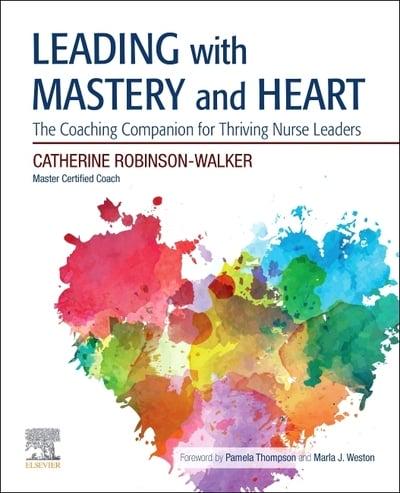Welcome to March 2020 blog post of resources and news
NHS Workforce – Race Equality Standard
2019 Data Analysis Report for NHS Trusts
Version number: 1
First published: February 2020
Prepared by: The WRES Implementation team
Excerpt : Section 07 Next steps and conclusions
In 2020, the WRES programme will increase its capacity to support the NHS locally
by establishing new regional WRES roles. Our approach will follow the concept of
‘proportionate universalism’: levelling the inequality gradient by focussing upon those NHS trusts that need the most support – and raising the bar for all at the same time. A key
element here will be to embed evidence- based interventions and models for improvement within organisations, so that they become sustainable over time, and to share replicable good practice in a systematic way across the NHS.
The WRES data continue to highlight key parts of the NHS that require enhanced support
including the ambulance sector, the nursing workforce, and London as an NHS region.
The WRES programme will also focus on identifying those NHS trusts that require the
most support and guidance on workplace culture – as indicated by WRES data over time.
These NHS trusts will be helped to change their workplace cultures, so all staff thrive and
flourish and are better able to provide the compassionate high-quality care that patients
need and deserve. The emphasis here will be on identifying the root causes, consequences
and robust solutions to closing the gaps between BME and white staff perceptions of
discrimination, bullying, harassment and abuse – and reducing the overall levels of these
indicators for all staff.
The WRES programme will also continue with its other workstreams to help ensure that
there is momentum and continuous improvement in the workforce race equality agenda
to help meet the goals set-out in the NHS Long Term Plan.
Also section “6.3 Sharing replicable good practice
One of the key pieces of work will be to focus on evidence-based replicable good practice
initiatives; to identify and share further examples of good practice threads that lead to
explicit system, regional and national patterns – exploiting common opportunities for
continuous improvement. That work has already commenced and on both the WRES
case studies webpage and the www.workplaceedi.com site, a catalogue of themed good
practice case studies is emerging, including the examples that are summarised in Annex B.
Taskforce on Increasing Non-Executive Director Diversity in the NHS
NHS Confederation
18 Feb 2020
What will the taskforce do?

Excerpt “The Independent Taskforce on Increasing Non-Executive Director Diversity in the NHS will oversee the development of an equalities and diversity framework for the recruitment and retention of chairs and non-executives in the NHS in England.
The taskforce has been established following a 2019 NHS Confederation report, which pointed to a decline in the number of chairs and non-executives recruited across gender, race, disability and age since the early 2000s. Senior leaders from across the NHS will sit on the taskforce – find out more about taskforce members and co-chairs.
The report attributes the decline in part to the loss of the Appointments Commission, the independent arm’s-length body which oversaw the appointment of chairs and non-executive directors. And to the creation of foundation trusts, which handed autonomy to the these trusts to make chair and non-executive appointments without the oversight of an independent agency.
The taskforce was one of five recommendations put forward to realise a step change in diversity within the non-executive community.”
Innovating for improved healthcare – Policy and practice for a thriving NHS
March 2020 , published by Rand Corporation
Chapter Four – Strengthening skills, capabilities and leadership for innovation
“RAND reports present research findings and objective analysis that address the challenges facing the public and private sectors.”
Events
Leadership Development Sessions – Meeting the challenges of tomorrow

The Leadership sessions are for:
- Clinicians and staff who do not normally access senior leadership development
- Primary Care Network staff including Practice Managers
- Staff from partner agencies, Voluntary, Community and Social Enterprise sectors
- Public sector staff involved in or interested in integrated care delivery.
In particular, as this programme covers a number of topics which support the effective delivery of communications and engagement, we want to encourage our patient and public representatives who work for Voluntary, Community and Social Enterprise organisations in Walsall to join a session and learn more about system leadership.
Some have already run, but there are 3 more :
News
Senior doctors praise medical leadership approach
07 February 2020, Hywel Dda University Health Board
Video: http://www.wales.nhs.uk/sitesplus/862/page/100220
- a new consultant one-year development programme;
- peer mentoring and support for new consultants and GPs;
- an Aspiring Medical Leaders Programme (AMLP), focusing on real time organisational learning and supporting the development of a healthcare system in line with ‘A Healthier Wales: Our Plan for Health and Social Care’;
- a Medical Leadership Forum to develop leadership capacity and capability and address professional development and service issues affecting the whole system;
- a multi-professional System Level Leadership Improvement Programme (SLLIP) to enable leaders to make sustained improvements throughout our services and systems; and
- the multi-disciplinary Enabling Quality Improvement in Practice (EQIiP) programme”
Leading with empathy – East Lancashire Hospitals NHS Trust
Feb 2020
Excerpt ” A case study of how East Lancashire Hospitals NHS Trust are using a modern, supportive approach to staff development to successfully combat longstanding recruitment challenges and rising rates of staff turnover and absence.”
Why Northamptonshire Healthcare NHS FT tore up the traditional management structure
People Management, 23 Jan 2020
Excerpts “….rather than simply putting its people on a one-off training course to teach them to be leaders, [Chris] Oakes [director of HR and OD] and his team across HR, OD and communications worked to embed this [distributed leadership] concept across the trust’s culture”
“….getting staff to sign up to a way of acting at work meant defining a set of agreed leadership behaviours. Crowdsourced from more than 200 employees at one of the trust’s regular Leadership Matters conferences, the set of four defined behaviours – ‘being authentic’, ‘embracing change’, ‘taking responsibility’ and ‘working together’ – are embedded across NHFT’s entire ethos. “It’s the bedrock of everything we do,” says Oakes. “It’s not just a policy that’s created and then sits on a shelf gathering dust.” And to help staff live the behaviours, the trust’s new approach is bolstered by a range of training courses, including negotiating for influence and personal brand, to further empower employees”
Senior leaders unveil a blueprint for the future of NHS comms
Feb 10 2020
“Exploring leadership development through the Anderson Programme in the English NHS”
Study opportunity at University of Birmingham School of Social Policy – closing date for applications is 13th April 2020
Excerpt ” The aim of this [funded PhD] project is to explore one or more of the three strategic themes (the ‘golden threads’) of the Anderson programme: the patient experience; equality, diversity and inclusion; and sustaining improvement. The study will in particular focus on the underlying mechanisms that influence participant development, resultant leadership behaviours and leadership practices.”
Excerpt from study opportunity University of Birmingham webpage “Leadership development can be used in a progressive way to improve health and care services, patient experience and equality, diversity and inclusion of staff and patients. However, leadership development could also, intentionally or otherwise cause a tendency to groupthink by viewing leadership through a widely shared paradigm or be perceived as a ‘fad’ (Hewison and Griffiths, 2004). There is a lack of empirical and theoretical research that explores how and why leaders in healthcare, and the people and services they lead, are influenced by leadership development programmes (Crowe et al, 2017). Although there is a wide array of feedback data and evidence describing many different leadership traits and styles, some is conflicting (Geerts et al. 2019). Research that theorises why and how leadership development programmes develop leaders and the impact on organisational culture, supported by empirical evidence is lacking (Lega et al., 2017). This is particularly surprising, given the increased use and costs of leadership development, particularly in health and care.”
Talking Health Leadership – event now passed but tweets available to read
2nd March 2020

Journal articles
The Clinical Teacher (February 19, 2020)
Social science & medicine (1982) Vol. 249, (February 5, 2020)
Leadership development trends and challenges in the twenty-first century: rethinking the priorities
The Journal of Management Development; Vol. 39, Iss. 1, (2020): 97-124
Journal of nursing management (February 3, 2020)
How Can Job Crafting Be Reproduced? Examining the Trickle-Down Effect of Job Crafting from Leaders to Employees
Int. J. Environ. Res. Public Health 2020, 17(3), 894
Job crafting mediates how empowering leadership and employees’ core self-evaluations predict favourable and unfavourable outcomes
European Journal of Work and Organizational Psychology, Volume 29, 2020 – Issue 1
Team Creativity in Public Healthcare Organizations: The Roles of Charismatic Leadership, Team Job Crafting, and Collective Public Service Motivation
Public Performance & Management Review , Volume 42, 2019 – Issue 6
New books

The Cambridge Handbook of The Changing Nature of Work
eBook (13 Mar 2020) |Online ISBN:9781108278034
Paperback (31 March 2020)

Leading With Mastery and Heart A Coaching Companion for Thriving Nurse Leaders
Catherine Robinson-Walker (author)
Paperback (16 Mar 2020) |